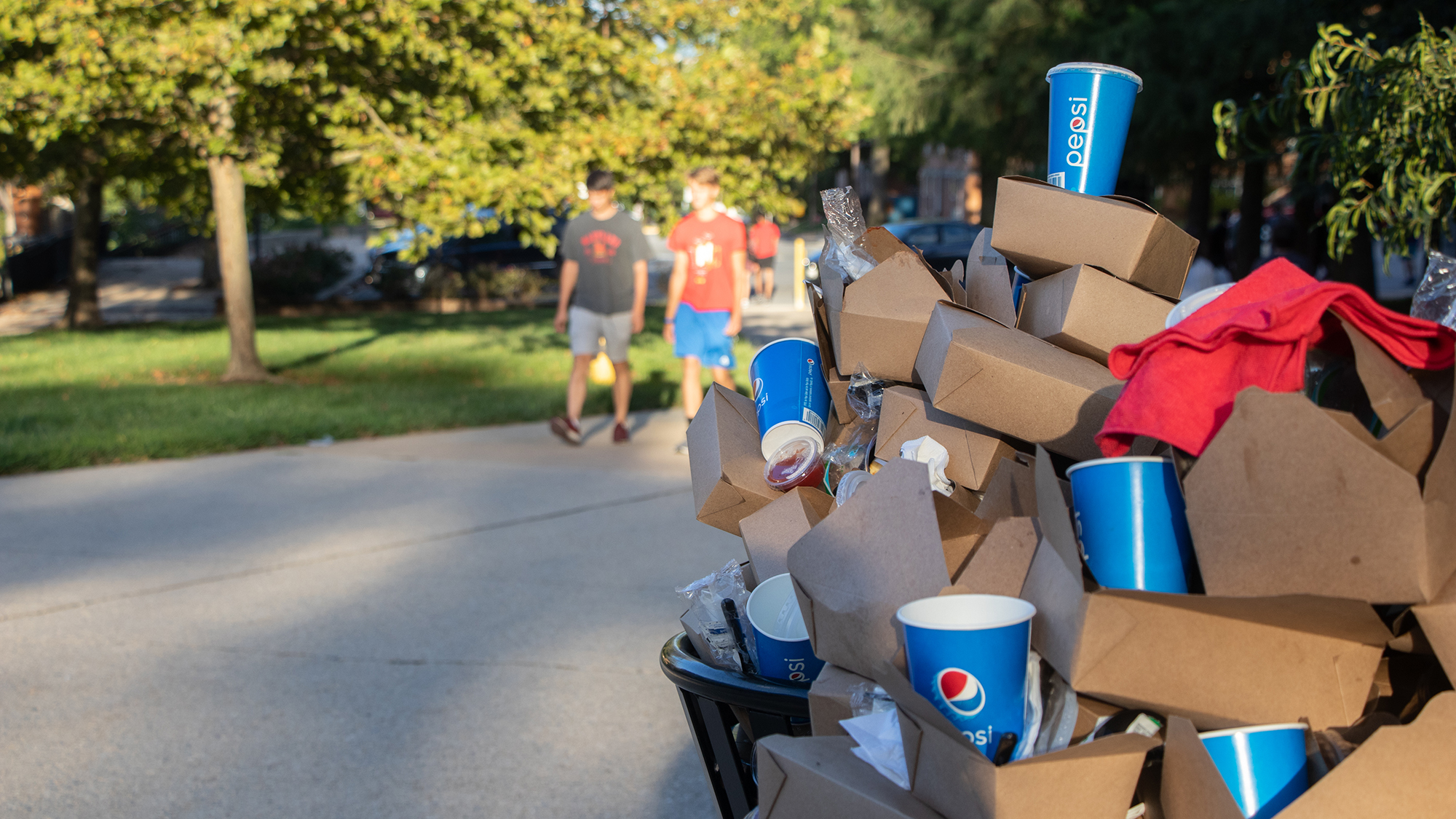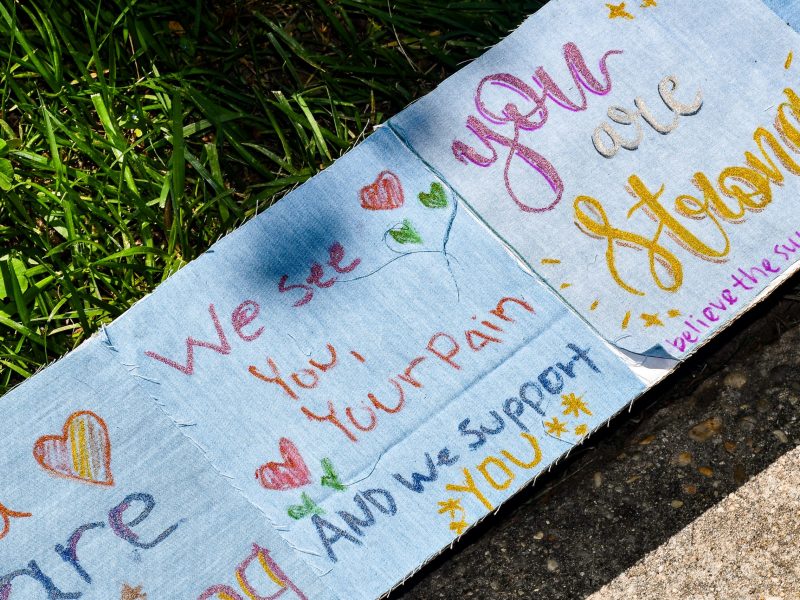By Hope Kahn
For The Diamondback
Every three days, Rachele Franceschi, a senior animal sciences major at the University of Maryland, takes her stack of takeout boxes to the compost bins in La Plata Hall’s lounge.
Franceschi composts her boxes, which came from the dining hall, in an effort to be environmentally conscious, but notices many of her peers failing to do the same.
“They just keep stacking and stacking and putting it on the floor in front of the trash cans,” Franceschi said. “They just throw it all into the landfill bin, and I’m just like mouth agape like, ‘Why are you doing this?’”
In order to combat the spread of coronavirus, Dining Services implemented a carryout-only dining procedure at the beginning of this semester, with the option of restricted in-person dining returning in October.
The boxes given through carryout are compostable and made of 100 percent recycled materials, said Dining Services spokesperson Bart Hipple.
[Long-term trash pile near CP Shopping Center sparks student concerns about littering]
Through this semester’s dining plan, students get three dining experiences a day, Hipple said, a change from the Anytime Dining plan that has been in effect since 2016.
When the university switched to Anytime Dining, Dining Services saved more than 6 million disposable products over the course of about its first four semesters. But now, due to coronavirus precautions, the department has had to take a step backward.
“We’re not excited that we’ve had to step away from some of our sustainability achievements and stepping back to where our program has been in the past,” Hipple said.
Amid the changes, some students, such as sophomore Isaiah Willett, want to effectively minimize waste but aren’t sure how to compost their carryout boxes.
Willett, a criminology and criminal justice major, lives in Harford Hall. He said he usually just cuts up the boxes and recycles them.
“I want to compost them, but I don’t know any composting bins,” Willett said.
Willett said most of his friends throw away their trash anyway, especially if they’re eating outside.
“We’re all students,” Willett said. “Some of us … [think] about the environment all the time, but most of us are kind of just too busy.”
[Here’s why dining halls at UMD don’t have waste baskets]
At the beginning of the semester, Franceschi, who is a member of this university’s Student Government Association Sustainability Committee, helped lead a project to tackle the excess amount of trash that resulted from many eating outside and then putting their trash in the landfill.
Dining Services, Franceschi said, has done well communicating with the committee and providing environmentally conscious options to students.
“The dining hall staff is doing a really wonderful job … just working really hard to serve the residents and continue to have all these compostable options,” Franceschi said.
Hipple agreed, saying environmental concerns have always been a priority for the department.
“Our program has been very focused on and proud of our achievements in sustainability for a number of years,” Hipple said.



